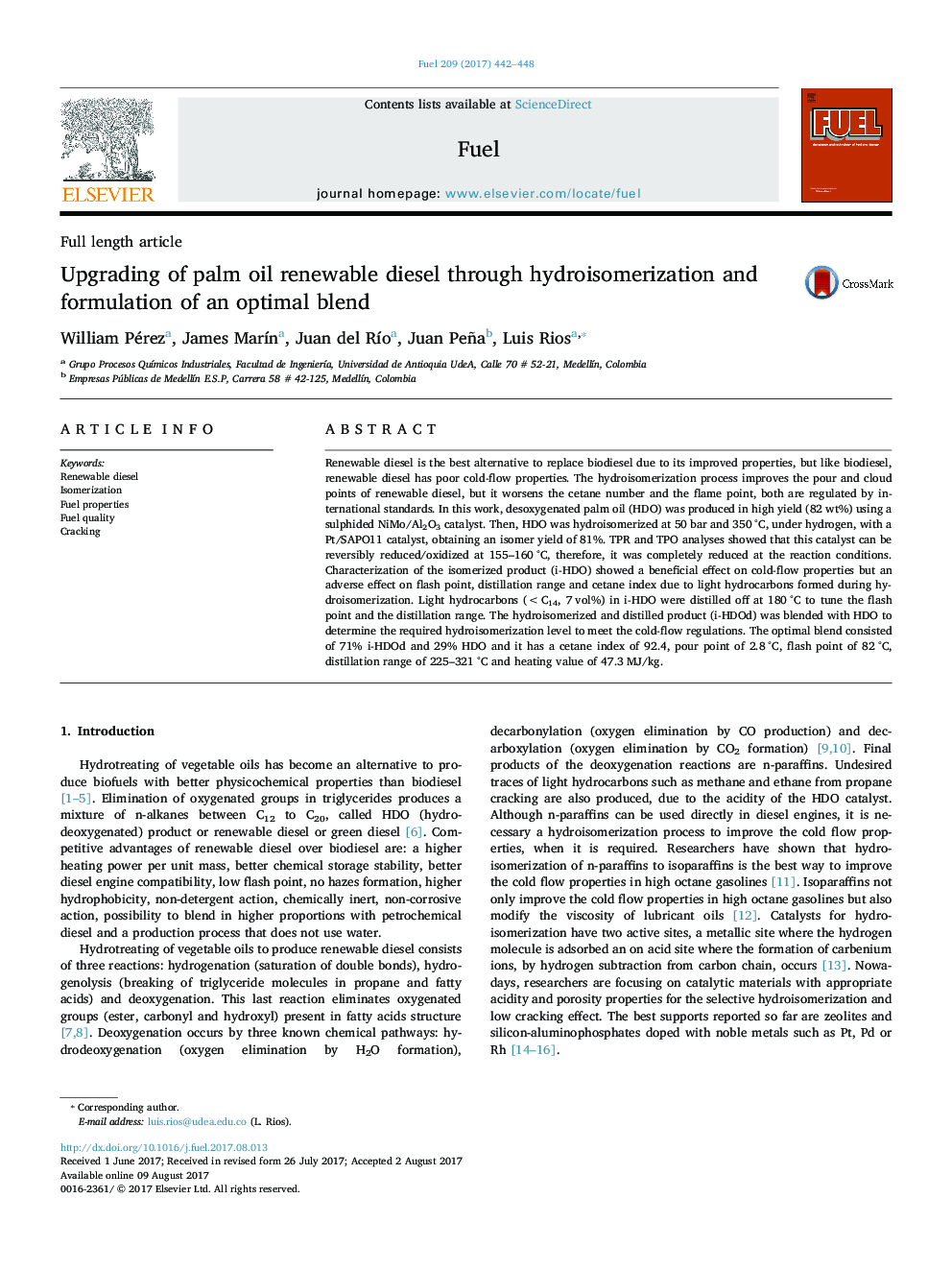| کد مقاله | کد نشریه | سال انتشار | مقاله انگلیسی | نسخه تمام متن |
|---|---|---|---|---|
| 6473933 | 1424955 | 2017 | 7 صفحه PDF | دانلود رایگان |
- Desoxygenated palm oil (HDO) was produced in 82% yield using a Ni-Mo catalyst.
- HDO was isomerized to i-HDO with Pt/SAPO11 obtaining an isomer yield of 81%.
- I-HDO has good cold-flow properties but bad flash point and distillation range.
- Light hydrocarbons were distilled off to tune flash point and the distillation range.
- An optimal blend that met quality standards was formulated (71% i-HDOd and 29% HDO).
Renewable diesel is the best alternative to replace biodiesel due to its improved properties, but like biodiesel, renewable diesel has poor cold-flow properties. The hydroisomerization process improves the pour and cloud points of renewable diesel, but it worsens the cetane number and the flame point, both are regulated by international standards. In this work, desoxygenated palm oil (HDO) was produced in high yield (82 wt%) using a sulphided NiMo/Al2O3 catalyst. Then, HDO was hydroisomerized at 50 bar and 350 °C, under hydrogen, with a Pt/SAPO11 catalyst, obtaining an isomer yield of 81%. TPR and TPO analyses showed that this catalyst can be reversibly reduced/oxidized at 155-160 °C, therefore, it was completely reduced at the reaction conditions. Characterization of the isomerized product (i-HDO) showed a beneficial effect on cold-flow properties but an adverse effect on flash point, distillation range and cetane index due to light hydrocarbons formed during hydroisomerization. Light hydrocarbons ( 159
Journal: Fuel - Volume 209, 1 December 2017, Pages 442-448
